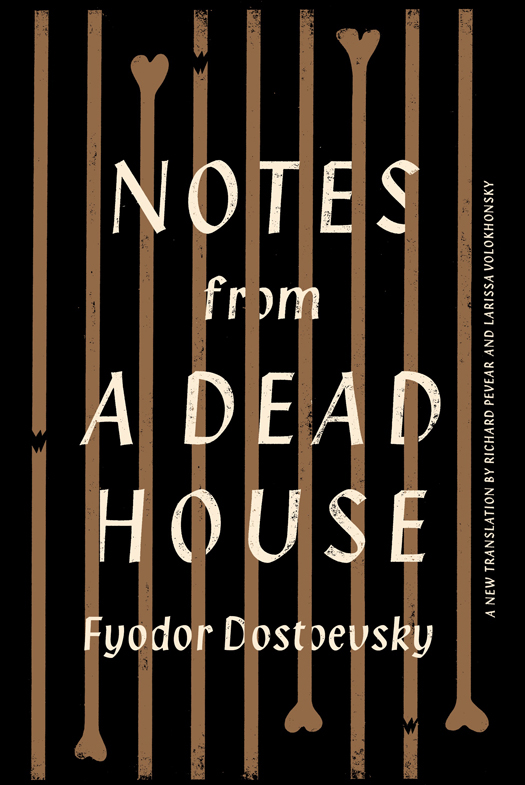
Notes from a Dead House
Vintage Classics
کتاب های مرتبط
- اطلاعات
- نقد و بررسی
- دیدگاه کاربران
نقد و بررسی

January 5, 2015
In April 1849, Fyodor Dostoevsky was arrested for his participation in an underground socialist ring. After his death sentence was commuted at the last minute, he spent four years doing hard labor in Siberia. The classic penal memoir that resulted is the latest to be translated by the acclaimed Pevear and Volokhonsky. The work is a loosely fictionalized account of Dostoevsky’s experience, framed by the voice of a fictional editor who acquires the papers of Alexander Petrovich Goryanchikov, an exiled nobleman who suffered 10 years of hard labor for the murder of his wife. Yet the book is organized as a collection of thematic sketches, rather than chronologically—“First Impressions,” “Christmas,” “The Hospital,” etc.—which are drawn from Dostoevsky’s memories and notes, written in prison and entrusted to a medical assistant who returned them upon his release. The notes are equal parts an anthropology of prison (how to smuggle vodka in a bull’s intestines, the lyrics to prison folk songs, biographical sketches of various condemned men, and an account of the ecology of prison politics) and equal parts philosophy, meditating on the use of prison as punishment, the psychology of an executioner (“It is hard to conceive how far human nature can be distorted”), and a nobleman’s perennial otherness within a prison’s walls (“I would never be accepted as a comrade”). Dostoevsky unflinchingly describes the dehumanization of prison, such as the way fetters were not even lifted from the dying, but also conveys how the flame of humanity survives even under such conditions, allowing cleverness and compassion to endure. This new translation is eminently readable.

January 15, 2015
One of literature's definitive prison memoirs is given new immediacy in this sturdy translation by the team of Pevear and Volokhonsky (Leo Tolstoy's War and Peace, 2007, etc.).Much of Dostoyevsky's work is yellowed with age, and its mustiness isn't entirely the fault of earlier translators; as well, he has the gloomy and moralizing air of the proselyte, especially one who's seen the worst side of human nature, all of which makes him sometimes disagreeable to read. This piece from his middle period, first published in 1861, is an exception. It's a thinly veiled roman a clef: The "dead house" in question is the walled prison within the greater prison that is the Siberian wild to which Dostoyevsky was remanded in 1849 after having run afoul of the czarist regime. "In prison they generally took a dark and unfavorable view of former noblemen," he writes. Alexander Petrovich Goryanchikov, the nobleman in question, returns the favor; imprisoned for killing his wife (a crime eligible for parole, of course), he is full of class prejudices and certain that he deserves better company, but in time, he sheds his disdain, having discovered that "in prison there was time enough to learn patience." Prison occasions its own society, a microcosm in which nobles become servants and another nobility emerges, one that values people such as the inmate who "was self-taught in everything: one glance and he did it." Indeed, Goryanchikov tells us, all the old categories and classifications fall victim to the reality of prison, where a man who's killed six people can be less frightening than one who's killed just one. "There were crimes of which it was hard to form even the most elementary notion: there was so much strangeness in the way they were committed." Lacking the penitential heavy-handedness of Dostoyevsky's later work, Notes humanizes the forgotten denizens of the first Gulag, decrying a system of punishment that does not always fit the crime. A classic made current and a welcome addition to the library of Russian literature in translation.
COPYRIGHT(2015) Kirkus Reviews, ALL RIGHTS RESERVED.

























دیدگاه کاربران